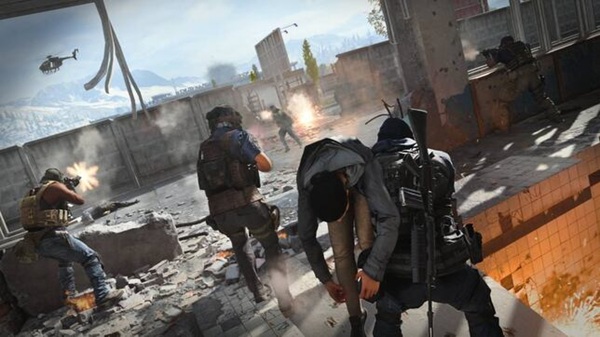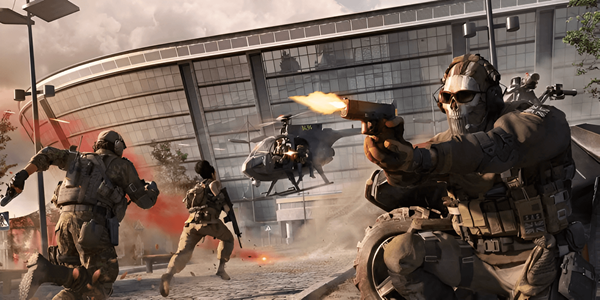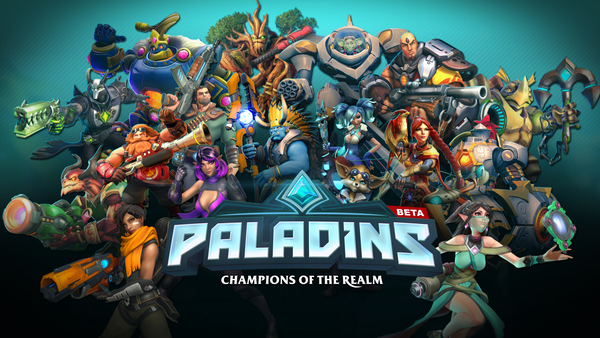Popular Now
Call of Duty, one of the most iconic first-person shooter (FPS) franchises, always sparks waves in the gaming community with each new release. But Modern Warfare II (2022) made headlines not just for its stunning visuals or refined gunplay—it reignited one of the most heated debates in multiplayer gaming: Skill-Based Matchmaking (SBMM). This article dives deep into the SBMM system in Modern Warfare II, tracing its origin, examining the backlash, and analyzing its effects on players, content creators, and the soul of the franchise.
What is SBMM and Why Does It Exist? 
Understanding the Core Mechanic
Skill-Based Matchmaking is a system that pairs players in online matches based on their skill level. The idea is to provide a fairer and more balanced gameplay experience where players of similar ability face off. Metrics typically used to evaluate skill include kill/death ratio (K/D), score per minute, win rate, and other performance indicators.
The Origins in Call of Duty
SBMM isn’t a brand-new concept in Call of Duty. However, recent titles—especially Modern Warfare II—have intensified its implementation. What used to be a subtle background mechanic has evolved into a strict, ever-present system that, many argue, strips away the fun and spontaneity of the game.
The First Signs: Early Community Reactions
A Split Community
From launch day, players started noticing a strange pattern: perform well in a match, and the next one becomes brutally difficult. Reddit threads, YouTube comments, and Twitter posts were flooded with frustration and theories about SBMM, with many feeling like they were being punished for doing well.
Content Creators Sound the Alarm
Popular streamers and YouTubers like Dr Disrespect and JackFrags voiced their dissatisfaction. They argued that SBMM made content creation a nightmare, as every lobby turned into a sweat-fest. With no more casual stomps or highlight-reel moments, their ability to entertain and perform suffered.
The Hidden Algorithm: How SBMM is Supposed to Work
Activision’s Secrecy
Unlike games such as Apex Legends or Overwatch that have ranked modes with visible systems, Activision has kept SBMM behind closed doors. This lack of transparency has fueled conspiracy theories and deepened distrust among the player base.
Presumed Parameters
Based on data analysis and community speculation, SBMM in Modern Warfare II is likely driven by:
-
Kill/death ratio (K/D)
-
Recent performance
-
Accuracy and combat efficiency
-
In-game behavior (e.g., quitting matches, movement patterns)
The system adjusts your matchmaking difficulty dynamically based on recent performance—creating a “perform well, suffer later” cycle.
The Impact on Player Experience
The Casual vs Competitive Dilemma
Call of Duty has always been known for its accessibility and casual appeal. But SBMM makes even the most relaxed game modes feel like ranked tournaments. One good match and suddenly you’re thrown into matches with semi-pro players—stripping away the casual fun.
The Psychological Toll
SBMM also has a psychological impact. Players feel exhausted, burned out, and even intentionally underperform to manipulate the algorithm. There’s no room to relax—every match demands peak performance, turning entertainment into a chore.
The Case from the Other Side: Why Some Players Defend SBMM
Inclusivity and Fair Play
Supporters of SBMM argue that it ensures fairness, especially for newer or less experienced players. Without SBMM, new players would be stomped repeatedly by veterans, discouraging them from continuing. SBMM gives everyone a fighting chance to improve and enjoy the game.
Reducing Toxic Behavior
Balanced matches also reduce toxicity. In lopsided games, skilled players often taunt or humiliate weaker opponents. SBMM encourages close games, reducing the frustration and poor sportsmanship that often arise from skill mismatches.
SBMM vs The Classic Call of Duty Identity
The DNA of Chaos
Call of Duty’s appeal has always included chaotic, fun matches where players could dominate and feel powerful. SBMM erases this aspect by constantly trying to keep your performance "in check." There’s no room for greatness—only balance.
The Nostalgia Factor
Veteran players reminisce about the “pub stomp” era—dropping 30 kills with a killstreak and becoming the MVP. SBMM has sterilized that chaos in favor of predictability, removing one of the most beloved aspects of the franchise’s identity.
Warzone and SBMM: The Battle Royale Conundrum
Different Game, Same Problem
SBMM has crept into Warzone too. While less obvious than in multiplayer modes, many players noticed that after a win or high-kill game, subsequent lobbies felt significantly harder. Because Warzone matches are longer, losing due to SBMM manipulation feels even more punishing.
Third-Party Analysis
Websites like SBMMWarzone.com once helped players analyze their lobbies and determine average skill levels. But Activision eventually shut these services down, sparking more outrage and reinforcing the theory that the company had something to hide.
The Content Creator Dilemma
Entertaining vs Competing
For content creators, SBMM is a creative roadblock. Their goal isn’t just to win—it’s to entertain. But SBMM makes every lobby a sweat-fest, offering little room for fun, unpredictable moments that audiences love.
The VPN Workaround
Some streamers resort to using VPNs to get into low-skill lobbies in other regions. While controversial, this workaround reflects just how badly SBMM is choking the ability to play freely and creatively in a game that once celebrated chaotic freedom.
Activision’s Response: Or Lack Thereof
Silence and Denial
Despite widespread criticism, Activision has largely stayed silent. When pressed, they issue vague statements about “improving the matchmaking experience,” without acknowledging the deeper concerns raised by players.
Profit-Driven Decisions
Many believe SBMM is driven not by gameplay quality but by business metrics. Newer players are more likely to spend money if they don’t get crushed immediately. SBMM protects those players, while alienating long-term fans who are deemed less profitable.
Possible Solutions and Community Suggestions
A Separate Ranked Playlist
The most popular solution is to separate casual and competitive matchmaking. Let casual modes return to their chaotic roots, and build a proper ranked system for competitive players. This compromise would serve both camps effectively.
Transparent Settings and Player Choice
Another idea is player-controlled matchmaking preferences. Imagine choosing between “Relaxed,” “Balanced,” or “Competitive” match settings before queuing. It would empower players and restore the sense of agency that's currently missing.
Conclusion: Can SBMM Ever Be Fixed?
SBMM in Modern Warfare II is a complex, polarizing issue. While it aims to create balance, its heavy-handed implementation alienates a large portion of the player base. When gaming becomes more stressful than fun, something’s gone wrong. The real question isn’t whether SBMM should exist—it’s how it can evolve to serve all types of players, not just the ones who fit neatly into an algorithm.



















